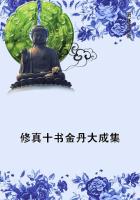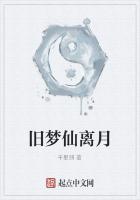The most hopeful fact in the University annals, after the gift of those manuscripts (to which the very beauty of their illuminations proved ruinous in Puritan times), was the establishment of a printing-press at Oxford, and the arrival of certain Italians, "to propagate and settle the studies of true and genuine humanity among us." The exact date of the introduction of printing let us leave to be determined by the learned writer who is now at work on the history of Oxford. The advent of the Italians is dated by Wood in 1488.
Polydore Virgil had lectured in New College. "He first of all taught literature in Oxford. Cyprianus and Nicholaus, Italici, also arrived and dined with the Vice-President of Magdalen on Christmas Day. Lily and Colet, too, one of them the founder, the other the first Head Master, of St. Paul's School, were about this time studying in Italy, under the great Politian and Hermolaus Barbarus. Oxford, which had so long been in hostile communication with Italy as represented by the Papal Courts, at last touched, and was thrilled by the electric current of Italian civilisation. At this conjuncture of affairs, who but is reminded of the youth and the education of Gargantua? Till the very end of the fifteenth century Oxford had been that "huge barbarian pupil," and had revelled in vast Rabelaisian suppers: "of fat beeves he had killed three hundred sixty seven thousand and fourteen, that in the entering in of spring he might have plenty of powdered beef." The bill of fare of George Neville's feast is like one of the catalogues dear to the Cure of Meudon. For Oxford, as for Gargantua, "they appointed a great sophister-doctor, that read him Donatus, Theodoletus, and Alanus, in parabolis." Oxford spent far more than Gargantua's eighteen years and eleven months over "the book de Modis significandis, with the commentaries of Berlinguandus and a rabble of others." Now, under Colet, and Erasmus (1497), Oxford was put, like Gargantua, under new masters, and learned that the old scholarship "had been but brutishness, and the old wisdom but blunt, foppish toys serving only to bastardise noble spirits, and to corrupt all the flower of youth."
The prospects of classical learning at Oxford (and, whatever may be the case to-day, on classical learning depended, in the fifteenth century, the fortunes of European literature) now seemed fair enough.
People from the very source of knowledge were lecturing in Oxford.
Wolsey was Bursar of Magdalen. The colleges, to which B. N. C. was added in 1509, and C. C. C. in 1516, were competing with each other for success in the New Learning. Fox, the founder of C. C. C., established in his college two chairs of Greek and Latin, "to extirpate barbarism." Meanwhile, Cambridge had to hire an Italian to write public speeches at twenty pence each! Henry VIII. in his youth was, like Francis I., the patron of literature, as literature was understood in Italy. He saw in learning a new splendour to adorn his court, a new source of intellectual luxury, though even Henry had an eye on the theological aspect of letters. Between 1500 and 1530
Oxford was noisy with the clink of masons' hammers and chisels.
Brasenose, Corpus, and the magnificent kitchen of Christ Church, were being erected. (The beautiful staircase, which M. Brunet-Debaines has sketched, was not finished till 1640. The world owes it to Dr.
Fell. The Oriel niches, designed in the illustration, are of rather later date.) The streets were crowded with carts, dragging in from all the neighbouring quarries stones for the future homes of the fair humanities. Erasmus found in Oxford a kind of substitute for the Platonic Society of Florence. "He would hardly care much about going to Italy at all, except for the sake of having been there. When I listen to Colet, it seems to me like listening to Plato himself"; and he praises the judgment and learning of those Englishmen, Grocyn and Linacre, who had been taught in Italy.
In spite of all this promise, the Renaissance in England was rotten at the root. Theology killed it, or, at the least, breathed on it a deadly blight. Our academic forefathers "drove at practice," and saw everything with the eyes of party men, and of men who recognised no interest save that of religion. It is Mr. Seebohm (Oxford Reformers, 1867), I think, who detects, in Colet's concern with the religious side of literature, the influence of Savonarola. When in Italy "he gave himself entirely to the study of the Holy Scriptures." He brought to England from Italy, not the early spirit of Pico of Mirandola, the delightful freedom of his youth, but his later austerity, his later concern with the harmony of scripture and philosophy. The book which the dying Petrarch held wistfully in his hands, revering its very material shape, though he could not spell its contents, was the Iliad of Homer. The book which the young Renaissance held in its hands in England, with reverence and eagerness as strong and tender, contained the Epistles of St. Paul.
It was on the Epistles that Colet lectured in 1496-97, when doctors and abbots flocked to hear him, with their note-books in their hands.
Thus Oxford differed from Florence, England from Italy: the former all intent on what it believed to be the very Truth, the latter all absorbed on what it knew to be no other than Beauty herself.
We cannot afford to regret the choice that England and Oxford made.
The search for Truth was as certain to bring "not peace but a sword" as the search for Beauty was to bring the decadence of Italy, the corruption of manners, the slavery of two hundred years. Still, our practical earnestness did rob Oxford of the better side of the Renaissance. It is not possible here to tell the story of religious and social changes, which followed so hard upon each other, in the reigns of Henry VIII., Edward VI., Mary, and Elizabeth. A few moments in these stormy years are still memorable for some terrible or ludicrous event.















